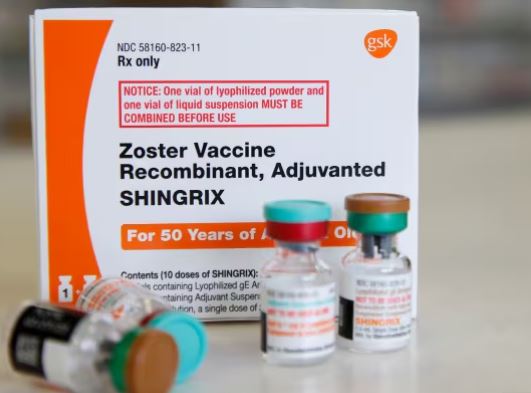The recent natural experiment conducted in Wales has revealed a noteworthy association between herpes zoster vaccination and a reduced risk of dementia. Leveraging a unique eligibility cutoff based on birthdate, the study compared dementia rates between individuals born just before and after September 2, 1933. This method effectively controlled for confounding variables, enabling researchers to draw more credible conclusions regarding the vaccine's impact on dementia risk . The findings indicated that individuals who were eligible for vaccination experienced a significant increase in vaccination rates by 47.2 percentage points, leading to a notable reduction in new dementia diagnoses over seven years.
A new study found shingles vaccination cut older adults’ risk of developing dementia over the next seven years by 20%.
The research, published Wednesday in the journal Nature, is part of growing understanding about how many factors influence brain health as we age – and what we can do about it.
“It’s a very robust finding,” said lead researcher Dr. Pascal Geldsetzer of Stanford University. And “women seem to benefit more,” important as they’re at higher risk of dementia.
Emerging evidence has suggestedopens in a new tab or window that infectious agents, including viruses in the herpes family that target and affect the nervous system, might contribute to Alzheimer's disease. This raises the possibility that vaccines could prevent or delay dementia, observed Anupam Jena, MD, PhD, of Harvard Medical School and Massachusetts General Hospital in Boston.
One of the most compelling aspects of the Wales analysis is its methodological rigor, Jena noted in an accompanying commentaryopens in a new tab or window. "By taking advantage of a well-defined eligibility cut-off dictated by policy, the authors circumvented the usual confounding issues that plague observational studies," he pointed out.
Moreover, the study found that the herpes zoster vaccine led to a relative reduction of 20% in dementia diagnoses, particularly among women . This result aligns with emerging evidence suggesting potential links between herpes viruses and Alzheimer’s disease. Although the precise mechanisms underlying this relationship remain unclear, these findings underscore the need for further investigation into this promising public health intervention .
The latest work, published in Nature, is not the first hint that shingles vaccines might shield against dementia. When Zostavax was rolled out in the US in 2006, several studies found lower rates of dementia in people who received the shots. Last year, Oxford researchers reported an even stronger protective effect in people who received Shingrix, a newer vaccine. Geldsetzer is now looking for philanthropic and private foundations to fund a randomised clinical trial to confirm any benefits.
It is unclear how shingles vaccines might protect against dementia, but one theory is that they reduce inflammation in the nervous system by preventing reactivation of the virus. Another theory is that the vaccines induce broader changes in the immune system that are protective. These wider effects are seen more often in women, potentially explaining the sex differences in the study.
In an accompanying article, Jena wrote: “Although it is still unclear precisely how herpes zoster vaccination lowers the risk of dementia, the implications of the study are profound. The vaccine could represent a cost-effective intervention that has public-health benefits strongly exceeding its intended purpose.”
Read more
Chelsea vs Tottenham: live stream , predictions and lineups Atletico Madrid vs Barcelona Prediction & Expected lineups - Copa del ReySarah H
Also on site :
- US adds Qatari aircraft to Air Force One support fleet
- Divided House GOP seeks to pass Trump's tax bill
- Breakthrough Malaria Control Kills Parasites Inside Mosquitoes, Boosting Net Effectiveness

